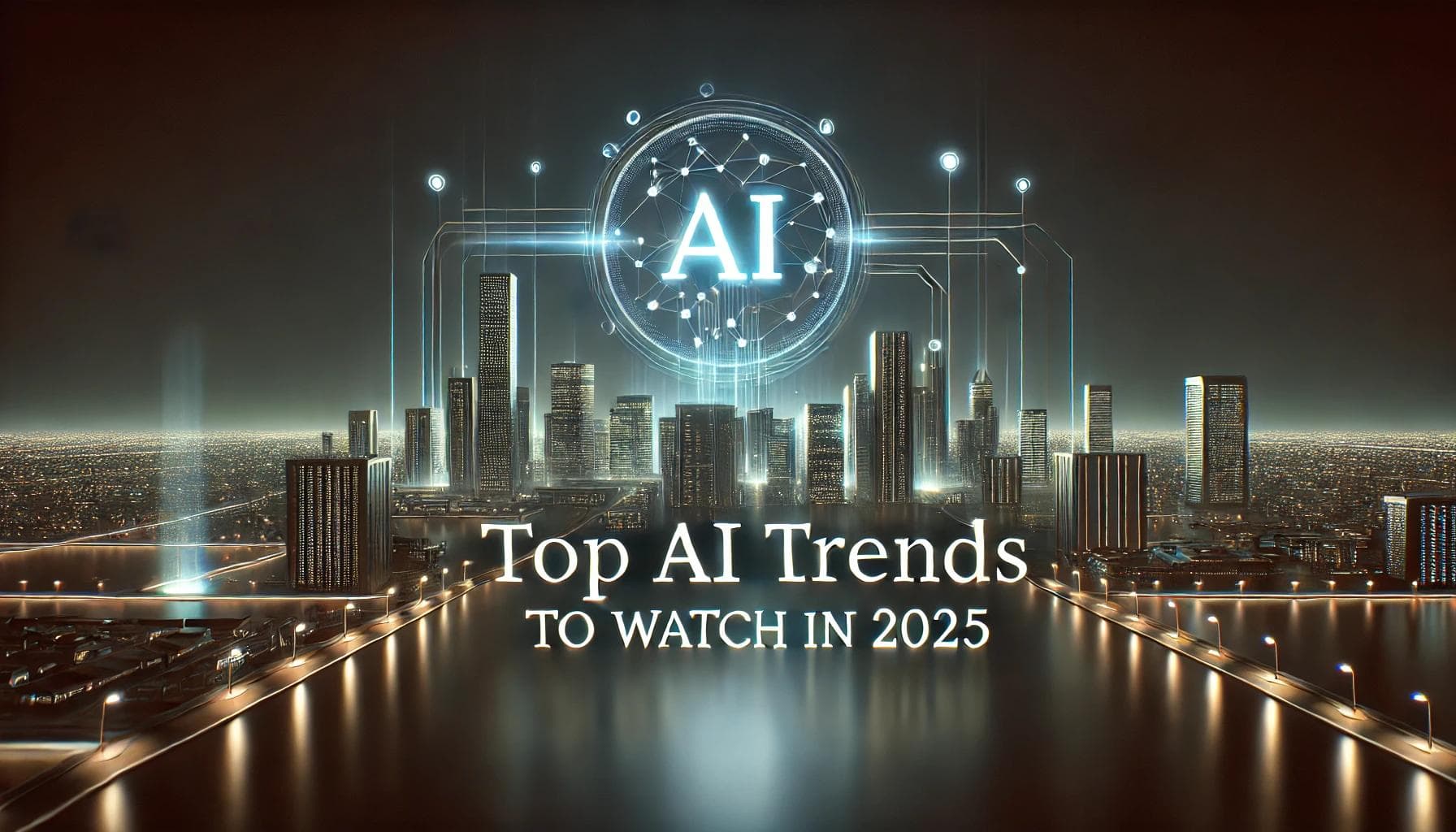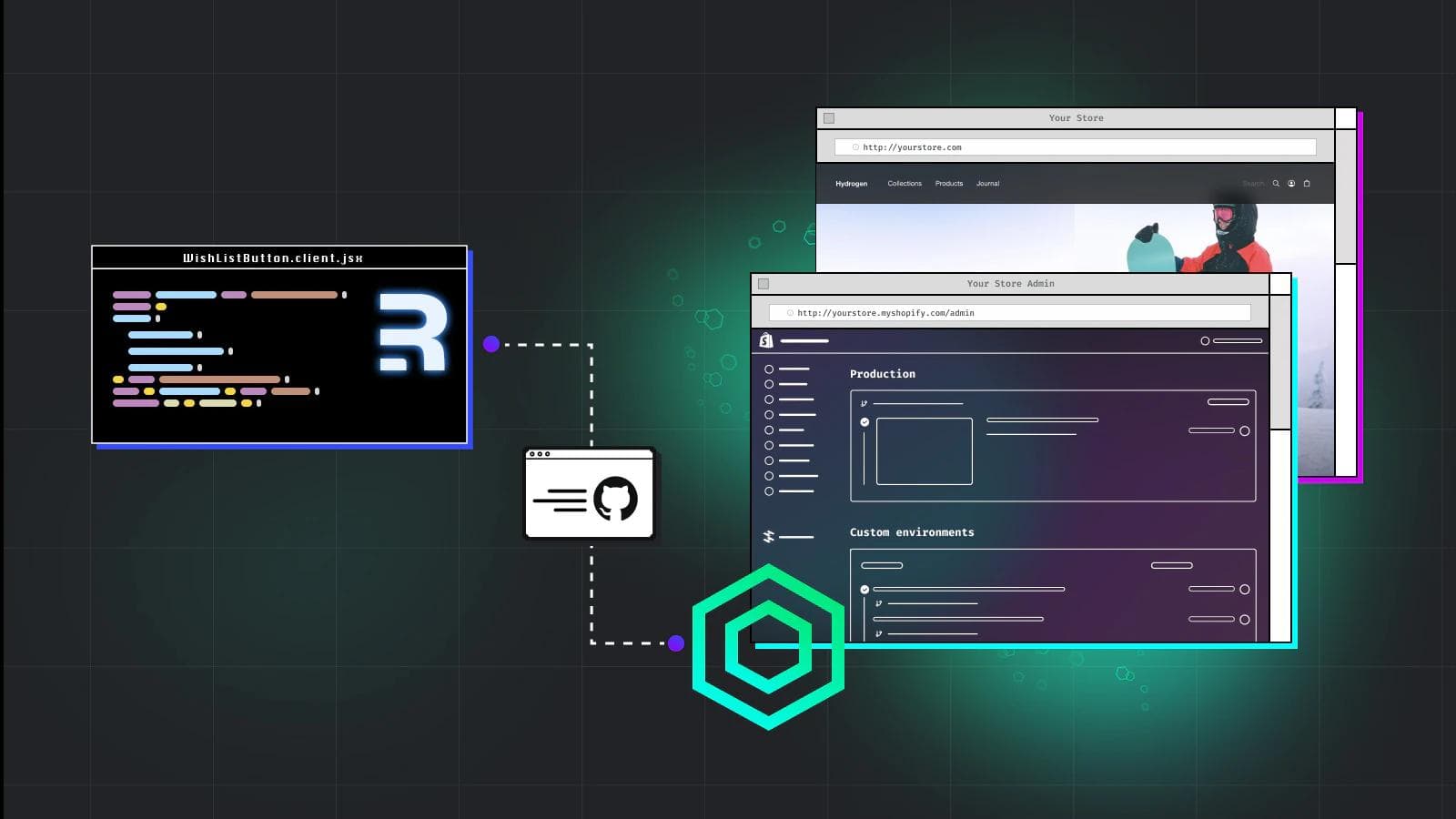
Top Generative AI Trends and AI News to Watch in 2025
AI is everywhere, from helping doctors to making music to creating your next social media post. As we head toward 2025, AI is going to keep changing the way we live and work. So, what's coming up in the world of AI? Let’s take a look at the top trends that are set to dominate.
1. Generative AI Goes Mainstream
By 2025, generative AI is going to be everywhere. We’re talking about AI that can write stories, create images, compose music, and even generate video content.
Companies like OpenAI and Google DeepMind have already made huge strides in this area with tools like ChatGPT and Google’s Gemini.
- Did you know? OpenAI’s GPT-4 can create human-like text, and Google’s Bard is now being integrated into everything from email writing to ad creation.
Expect generative AI to be in your toolbox for content creation, whether you're working in marketing, designing websites, or even crafting personalized videos for your brand. It’s predicted that by 2025, over 30% of all content produced online will come from AI.
2. AI Will Automate Even More of Our Work
AI is already handling repetitive tasks like scheduling meetings, answering customer questions, and sorting emails.
But in 2025, this automation is going to ramp up. AI will be doing a lot more complex tasks that once needed humans, like managing projects or even making business decisions based on data.
- Example: In 2023, over 60% of companies used AI for customer support, and that number is expected to grow to 90% by 2025. Chatbots and virtual assistants will be more intelligent, handling everything from tech support to personalized shopping advice.
3. AI for Personalized Healthcare
Healthcare is a big one. AI is already making waves in predicting patient outcomes, diagnosing diseases, and suggesting treatment plans. By 2025, AI will be able to create personalized health recommendations based on your DNA and lifestyle.
- Example: AI-driven tools are already used to analyze medical scans and have been found to be as accurate, if not more so, than human doctors in some cases.
- According to Accenture, AI in healthcare could save the industry $150 billion annually by 2026. That’s a game-changer for how we treat and prevent illnesses!
Read in detail about AI video generation by OpenAI
4. AI Helps the Planet: Sustainability and Climate Change
AI isn’t just about business, it's also about saving the planet. From optimizing energy use in homes and businesses to improving farming practices, AI will be key in fighting climate change.
- Did you know? AI can help reduce energy consumption by up to 10% by optimizing systems like heating, cooling, and lighting. The United Nations predicts that AI could reduce global CO2 emissions by 4% by 2030.
By 2025, AI will help companies and governments better manage resources, reduce waste, and even predict climate trends with incredible accuracy.
5. Smarter Cybersecurity with AI
As hackers get smarter, AI will get even better at protecting us. AI will be able to detect and respond to cybersecurity threats in real-time. Companies like Darktrace and CrowdStrike are already using AI to spot unusual behavior and stop cyberattacks before they happen.
- Example: By 2025, AI-driven cybersecurity solutions are expected to stop 90% of potential cyberattacks before they can cause damage.
AI will be smarter, faster, and more proactive in keeping your data safe.
6. Explainable AI: Trusting the Machines
As AI becomes more powerful, people are going to want to understand how it works. That’s where explainable AI (XAI) comes in. AI systems will start giving us clear explanations for their decisions, which is important in industries like finance, law, and healthcare.
- Example: If a bank uses AI to approve loans, you’ll get an explanation for why you were approved or denied, making the process more transparent and fair.
In 2025, expect to see explainable AI in more businesses, helping build trust with customers and stakeholders.
Explore the custom Generative AI solutions for businesses
7. AI Gets More Creative
AI isn’t just for work – it’s also becoming a creative partner. In 2025, AI will be making art, music, and even writing stories that are so good, you’ll hardly be able to tell the difference between human-made and AI-made content.
- Did you know? In 2023, AI-generated art became mainstream, with platforms like DALL-E and Midjourney helping people create professional-looking images with just a few words. By 2025, we’ll see even more advanced AI tools that can produce high-quality music, literature, and video.
It’s a win-win: AI can speed up the creative process and offer fresh ideas, all while enhancing human creativity.
8. Quantum Computing and AI Together
Quantum computing and AI will start working together to solve problems that are too complex for today’s computers.
By 2025, we could see massive breakthroughs in medicine, energy, and cryptography, thanks to the combination of AI and quantum computing.
- Example: Companies like IBM and Google are working hard on quantum computers, and they’re already using AI to improve quantum algorithms. This will lead to new discoveries in fields like drug development and climate change.
The future of AI will be boosted by the ability to solve problems that once seemed impossible.
9. Autonomous Vehicles Get Smarter
AI-powered cars are becoming more common every year, and by 2025, autonomous vehicles (AVs) will be a regular sight on the road. These cars will drive themselves, using AI to understand the environment, make decisions, and keep us safe.
- Did you know? Tesla’s Full Self-Driving (FSD) technology is already helping cars navigate on highways and city streets, with plans to fully roll out by 2025. Self-driving trucks could also change the delivery industry, making transportation faster and cheaper.
10. AI Personal Assistants Become More Helpful
Think of Siri or Alexa, but much smarter. By 2025, AI-powered virtual assistants will be able to do more than just set reminders and tell you the weather. They’ll handle complex tasks like booking travel, managing your calendar, and even giving you personalized recommendations based on your habits.
- Example: Imagine an assistant that reads your email, picks up on important messages, and drafts replies for you. Sounds like a dream, right? Well, it's already happening, and by 2025, these assistants will become much more intuitive and useful.
11. AI Makes Business Smarter
AI is going to become even more powerful in business. From real-time analytics to automated decision-making, businesses will use AI to make faster, smarter decisions.
- Did you know? According to McKinsey, AI could add up to $15.7 trillion to the global economy by 2030. By 2025, AI will help businesses become more efficient, cut costs, and create new revenue streams.
Expect AI to be at the core of business strategies, helping leaders make data-driven decisions every day.
12. AI Transforms Education
By 2025, AI in education will be widely used to create personalized learning experiences. AI will adapt to each student’s needs, help with homework, and even provide feedback in real-time.
- Example: Tools like Duolingo are already using AI to teach languages in a personalized way, and by 2025, we’ll see more schools using AI for tailored learning experiences.
AI will make education more accessible and effective for everyone, everywhere.
13. AI and Humans Working Together
Instead of replacing jobs, AI will become a collaborator, helping humans do their work more efficiently. In 2025, we’ll see AI being used to enhance human creativity, solve complex problems, and improve decision-making.
- Example: Engineers and scientists are already using AI to design better products, develop smarter technologies, and find new solutions to long-standing challenges.
14. AI Ethics and Regulations Emerge
With AI’s rapid growth, it’s becoming more important to ensure it’s being used responsibly. By 2025, we’ll see stronger AI regulations that ensure these technologies are ethical, transparent, and don’t harm society.
- Example: The European Union is already working on legislation to regulate AI use, ensuring AI respects privacy and human rights.
15. AI for Mental Health Support
Finally, AI is going to play a huge role in mental health. Whether it's through chatbots offering instant support or AI tools helping doctors monitor patients, AI will make mental health care more accessible.
- Example: AI platforms like Woebot already offer mental health support, and by 2025, these tools will be more sophisticated, providing emotional support and personalized treatment.
Conclusion: The Future of AI in 2025
AI is transforming how we work, live, and solve global challenges. From smarter healthcare to better cybersecurity to new ways of creating art, 2025 is going to be an exciting year for AI.



